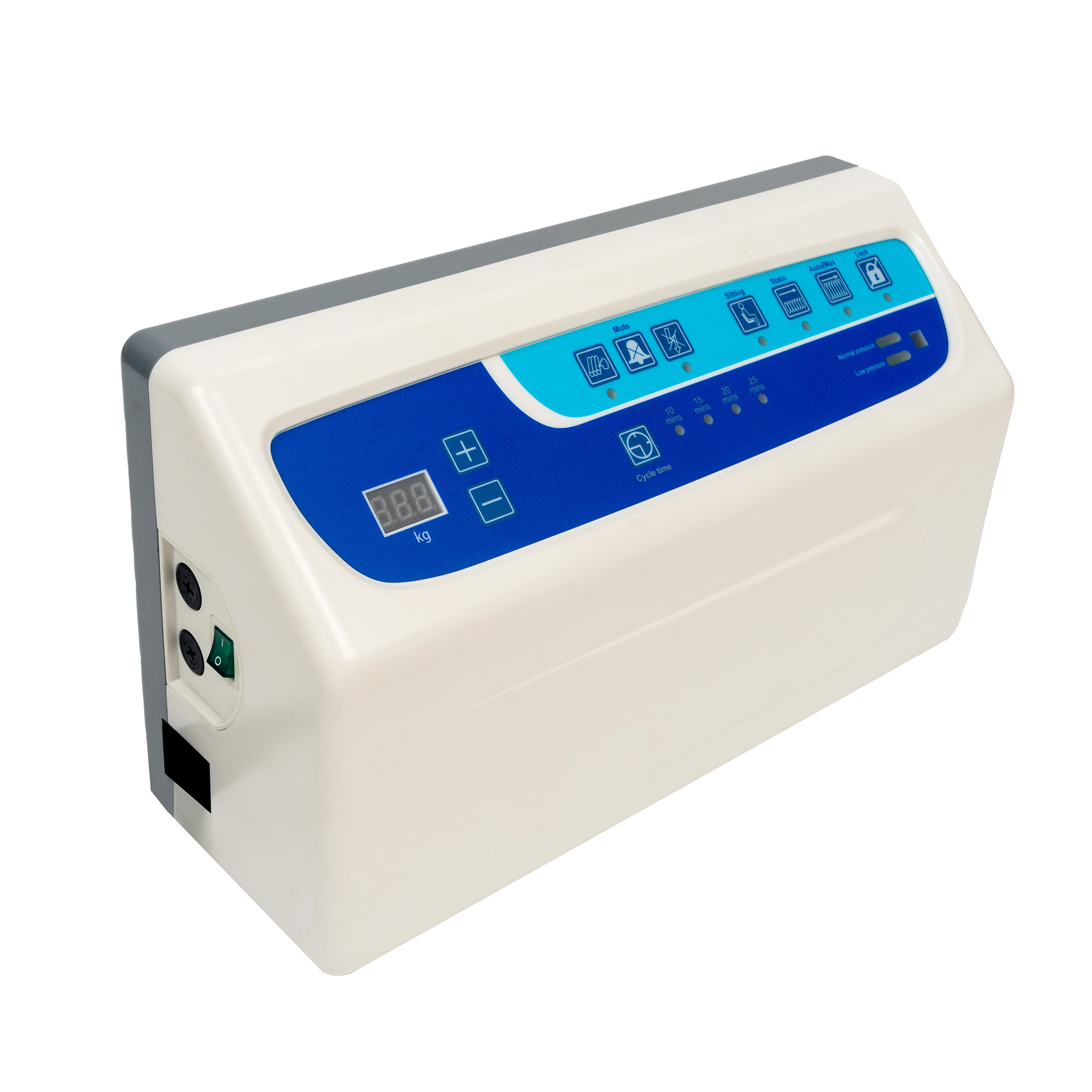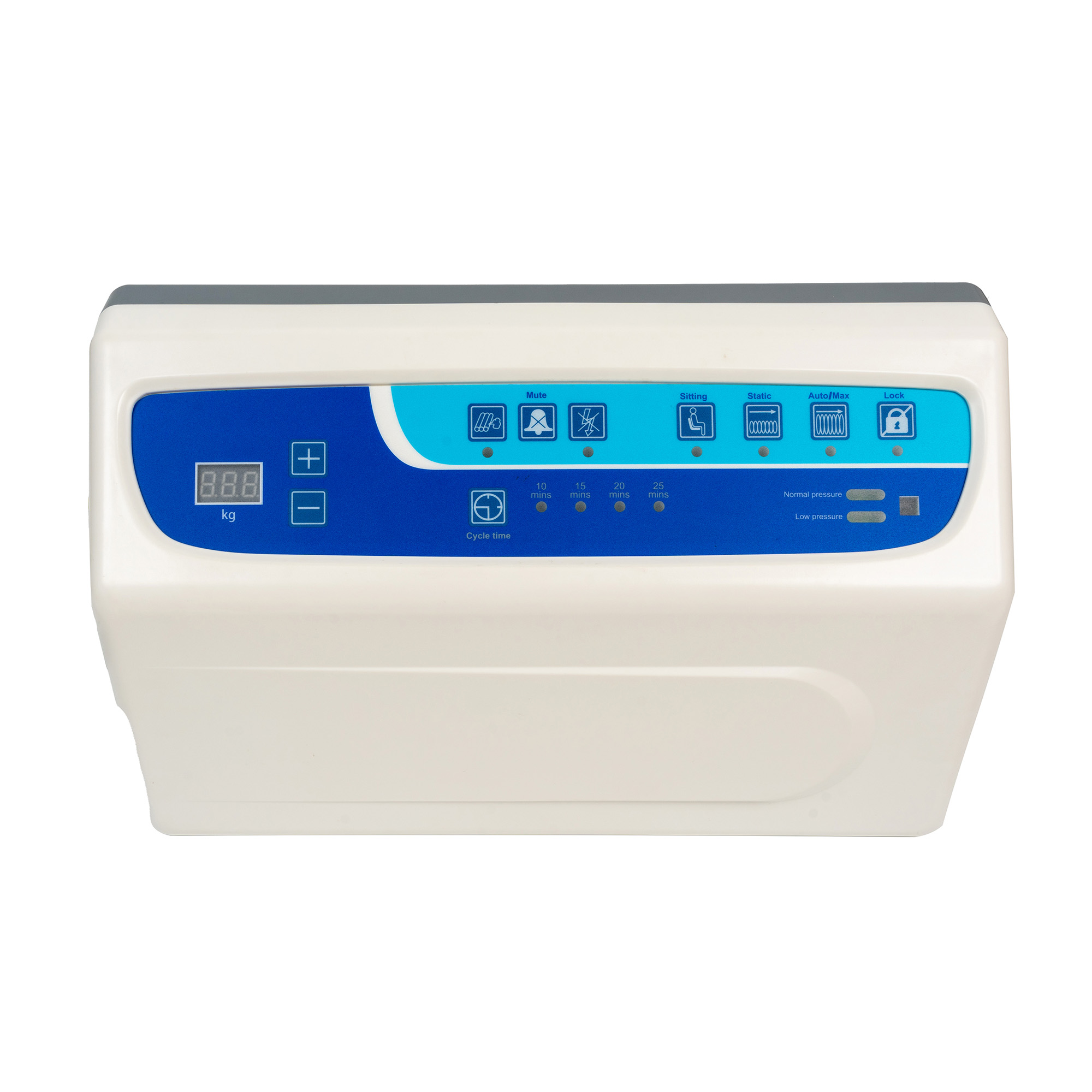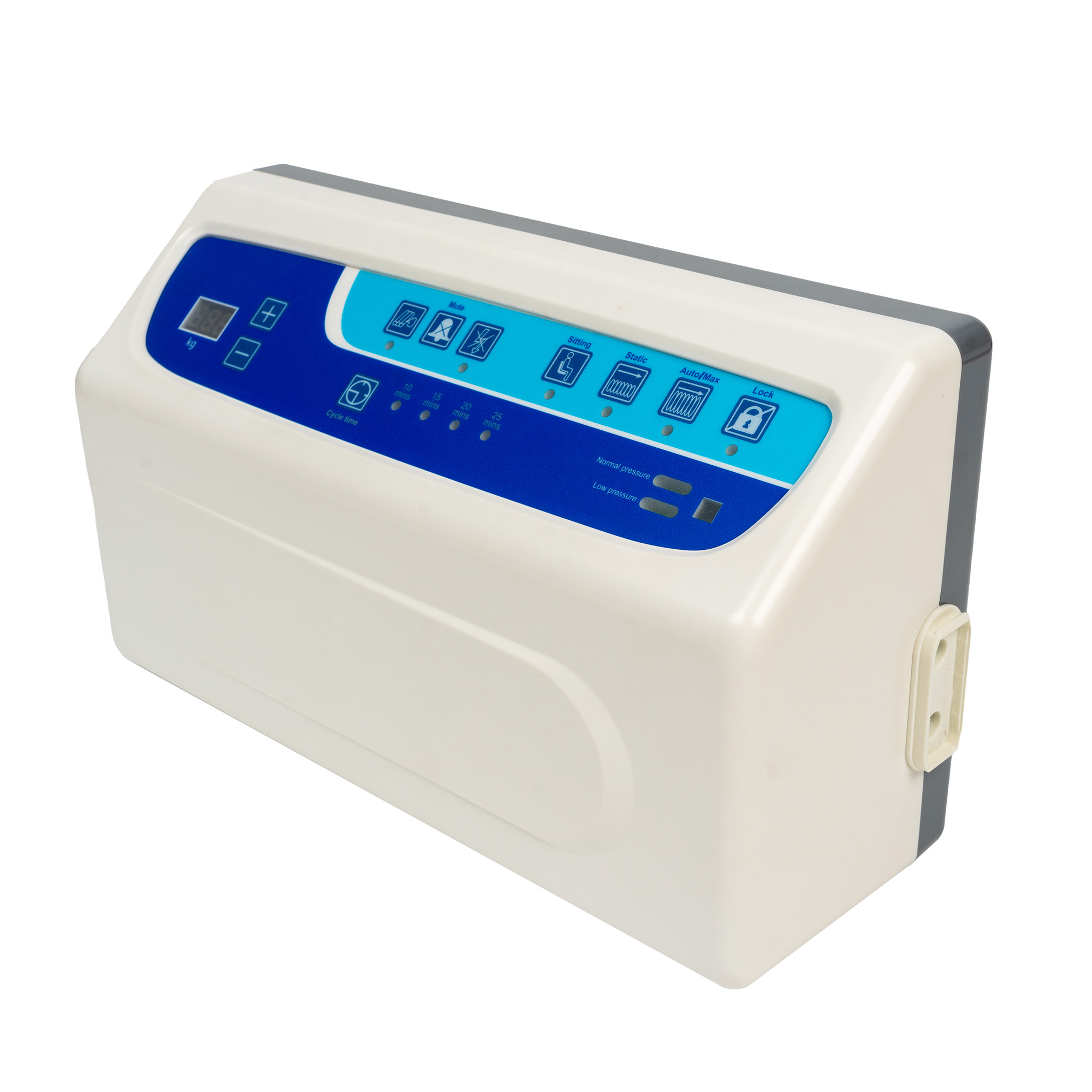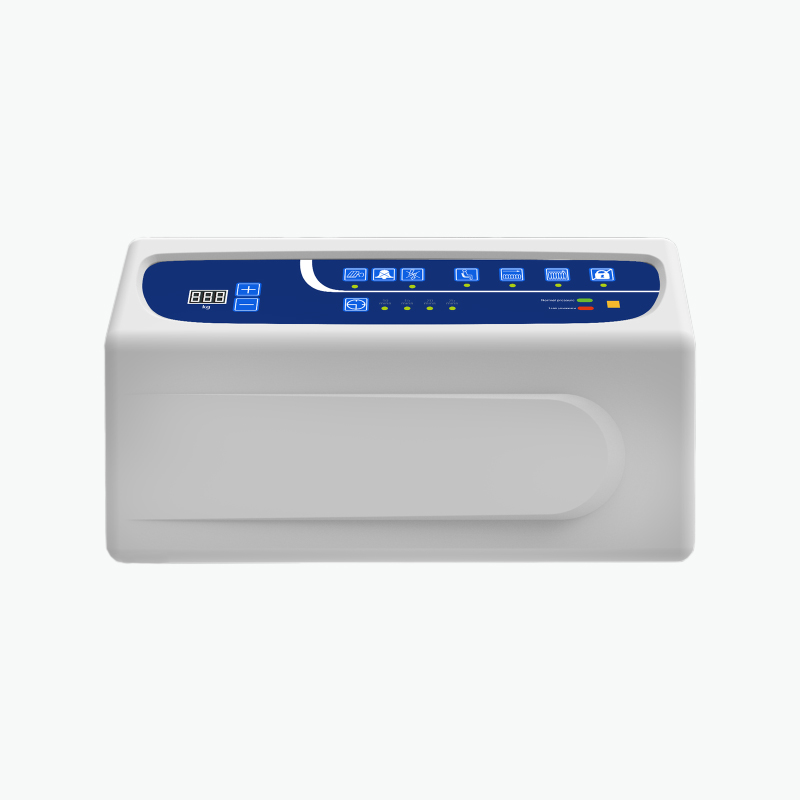Air Compressor for Medical Mattress Soundless Pump Low Noice (HF806)
Usage scenarios and target population:
1. Hospitals: Anti-decubitus mattresses are commonly used in hospitals, especially in intensive care units (ICUs), post-operative care units, and long-term care facilities. They provide support and pressure redistribution for patients who are bedridden or have limited mobility.
2. Nursing Homes: These mattresses are also widely used in nursing homes or assisted living facilities. They cater to elderly individuals who may spend extended periods in bed or have limited mobility.3
. Home Care: Anti-decubitus mattresses can be used in home care settings for individuals who require long-term bed rest or have conditions that make them susceptible to pressure ulcers. They provide comfort and prevent the development of bedsores.
4. Rehabilitation Centers: Patients undergoing rehabilitation, such as those recovering from spinal cord injuries or stroke, can benefit from anti-decubitus mattresses. These mattresses help in maintaining proper body alignment and reducing pressure on vulnerable areas.
5. Palliative Care: Individuals receiving palliative care, including those with terminal illnesses or in hospice care, may use anti-decubitus mattresses for enhanced comfort during their end-of-life care.
6. Individuals at Risk: Anti-decubitus mattresses are suitable for individuals who are immobile, have limited mobility, or are at a higher risk of developing pressure ulcers. This includes people with spinal cord injuries, paralysis, neurological disorders, or those who are bedridden due to illness or injury.
7. Prevention and Treatment: Anti-decubitus mattresses can be used both as a preventive measure and as a treatment for existing pressure ulcers. They help in reducing pressure, improving blood circulation, and promoting healing.






